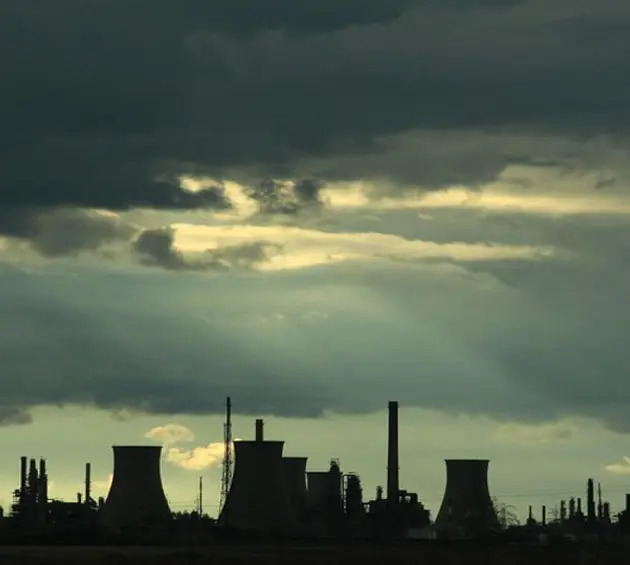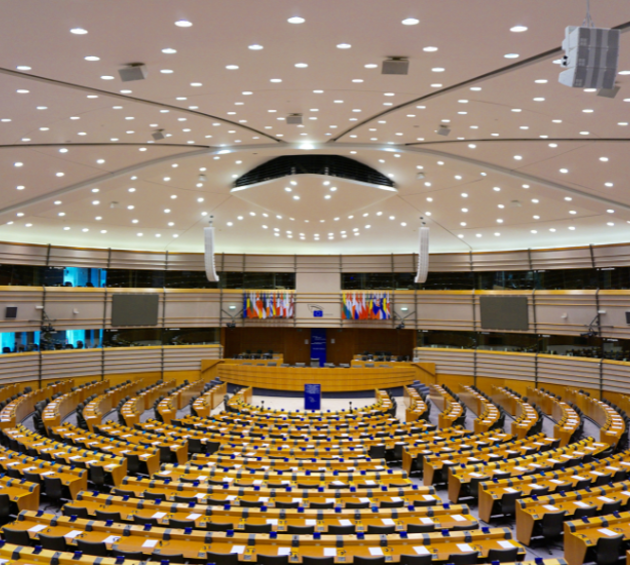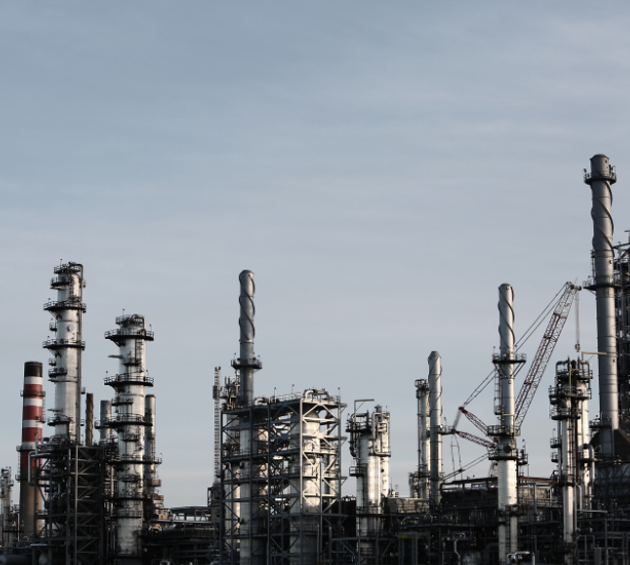ClientEarth Communications
11th March 2025


The new Netflix drama tells the tragic true story of an environmental scandal – the Corby birth defects and poisonings. It follows a group of brave mothers whose children had developed birth defects (often missing fingers or toes) due to their housing estate being built on a former steelworks site.
After confronting their town’s council about its alleged mismanagement of the toxic waste materials, they eventually received compensation following a lengthy legal battle. It’s a real David vs Goliath story.
Sadly, there are many toxic towns around the world.
Here are just some examples:
Cancer Alley (Louisiana, USA) – pollution from fossil fuel and chemical plants along the Mississippi river have raised cancer rates to 50 times the national average along this 85-mile-long corridor. Some residents have taken their fight to the courts.
Chemical Valley (Lyon, France) – High levels of forever chemicals have been found in the air, soil and breast milk around plants producing PFAS in south-Eastern France. The company owning one of the plants, Arkema, is now facing criminal charges.
Antwerp (Belgium) – Workers at a chemicals plant in North Belgium have 500 times more PFAS in their blood than EU standard allows. Local politicians and the owner of the plant 3M had kept this pollution hidden from the citizens for several years.
Areas like this are also often referred to as 'sacrifice zones', meaning the communities who are forced to live on the front lines of toxic pollution from industry, intensive farming and other chemical-intensive processes.

Sacrifice zones - these toxic towns where communities are forced to live with the effects of chemical pollution - are so-called because they are areas where people’s health and safety are being sacrificed for business profit.
A special report for the UN Human Rights Council found that tens of millions of people are suffering strokes, cancers, respiratory problems and heart disease as a result of toxic contamination of their environment – a clear violation of their human rights.

Despite overwhelming evidence of harm, regulatory action to ban the most harmful chemicals often lags behind, allowing industries to continue polluting for decades before meaningful restrictions are imposed.
Waiting until the problem worsens is both reckless and costly. For example, the cost of cleaning up PFAS pollution could reach more than £1.6 trillion across the UK and Europe over a 20-year period.
Companies won’t regulate themselves. Policymakers need to put in place sweeping restrictions on harmful chemicals such as PFAS.
Finally, victims of chemical pollution should be able to get their voices heard in court. But their path to justice for harm caused under the EU chemical regulations is not straightforward, because of costly and lengthy proceedings and needing to overcome difficult evidential hurdles to prove company misconduct.
Here are some of the ways we are working to tackle toxic pollution and its effect on the environment and human health.

Chemours had been challenging the European chemicals watchdog (ECHA) over its decision to include a group of harmful PFAS chemicals on the EU’s list of substances of ‘very high concern’.
We intervened in this case to support ECHA in Chemours’ case against them, alongside our partner CHEM Trust. The judge upheld that these PFAS chemicals, known as ‘Gen X’, should be on the list of substances of very high concern. Chemours appealed this decision, but their appeal was dismissed in 2023.

The current version of EU’s main law on chemicals – known as ‘REACH’ – is inadequate to deal with the reality of chemical pollution. It was due to be reformed in 2023, but this was delayed. We are letting authorities know what we want to see from the reform, including a deadline for phasing out hazardous chemicals, greater transparency around them, their use to be as contained and restricted as possible and for victims of chemical pollution to have better access to justice.

The European Chemicals Agency is currently assessing a universal ban on PFAS. We believe that the strongest form of ban must be adopted as soon as possible, and we’re advocating for this.

Companies need to proactively manage their growing exposure to financial, transition and liability risks associated with PFAS. This means being transparent about what PFAS they produce, where, and in what kinds of products their PFAS ends up. In view of the proposed PFAS restriction, company boards should also be carefully considering – and communicate clearly about – whether or not they have a plan to phase down unnecessary and harmful PFAS production

We're representing a group of property owners and farmers in Colorado, burdened with polluting abandoned oil and gas wells on their properties, in filing a lawsuit against the oil and gas companies responsible. This is a landmark case that could dramatically overhaul responsibility for the nation’s more than two million unplugged oil and gas wells.
The class action complaint alleges the oil and gas companies took part in common oil industry tactics to evade their legal responsibilities to ‘plug’ the wells once they have stopped producing oil or gas.

We're representing two Polish citizens who suffer from asthma, as they are taking their government to court over its failure to tackle air pollution. They are alleging that the Polish State’s failure to tackle smog has worsened their health conditions, violating their fundamental rights, especially the right to health.

Chiara is fighting on behalf of her six-year-old son, who suffers from lung problems, asthma and recurrent infections, linked to being exposed to high and often illegal levels of air pollution in Turin.
She is demanding that the court recognise her son’s right to breathe clean and healthy air and hold the regional authorities accountable for the damage breathing illegally polluted air has done to her son’s health, and demanding that the court orders the Piedmont region to take immediate action to reduce illegal levels of air pollution as soon as possible.